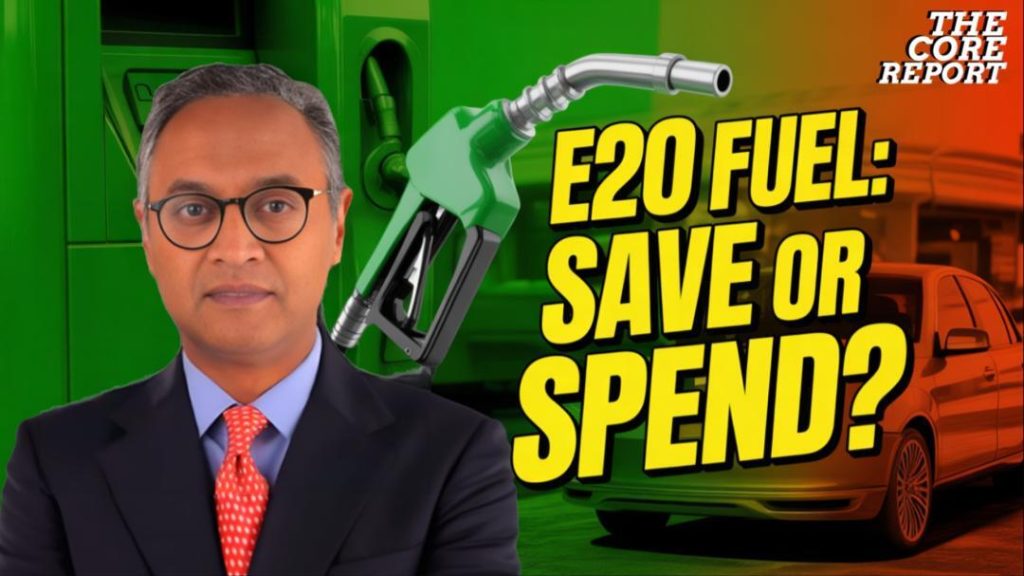
E20 Fuel in India: Benefits, Risks & What Vehicle Owners Must Know
India’s energy landscape is undergoing a significant transformation with the introduction of E20, a petrol blend that contains 20% ethanol. The government has been promoting the use of E20 as a sustainable and environmentally friendly fuel option, with the aim of reducing carbon emissions, boosting energy security, and supporting farmers. But what does this mean for vehicle owners, and what are the benefits and risks associated with using E20 fuel?
Benefits of E20 Fuel
Studies conducted by the government have reported several benefits of using E20 fuel, including:
- Improved acceleration: E20 fuel has been found to improve the acceleration of vehicles, making them feel more responsive and agile on the road.
- Environmental benefits: The use of E20 fuel can help reduce greenhouse gas emissions, contributing to a cleaner and healthier environment.
- Energy security: By reducing dependence on imported crude oil, the use of E20 fuel can help improve energy security and reduce the country’s reliance on foreign oil supplies.
- Support for farmers: The production of ethanol, a key component of E20 fuel, can help support farmers by providing them with an additional source of income.
Risks Associated with E20 Fuel
While E20 fuel has several benefits, there are also some risks associated with its use, particularly for older vehicles that are not designed to run on E20 fuel. These risks include:
- Engine wear: E20 fuel can cause engine wear and tear, particularly in older vehicles that are not designed to run on the blend.
- Fuel system corrosion: The ethanol content in E20 fuel can cause fuel system corrosion, which can lead to costly repairs and even engine failure.
- Mileage loss: Some vehicle owners have reported a loss of mileage when using E20 fuel, which can be a significant concern for those who rely on their vehicles for daily commutes or long road trips.
What Vehicle Owners Must Know
To mitigate the risks associated with E20 fuel, vehicle owners must take certain precautions. These include:
- Checking vehicle compatibility: Before using E20 fuel, vehicle owners should check their vehicle’s compatibility with the blend. This can be done by consulting the vehicle’s owner’s manual or contacting the manufacturer.
- Using the right fuel filter: Using a fuel filter that is designed for E20 fuel can help prevent fuel system corrosion and ensure smooth engine operation.
- Monitoring engine performance: Vehicle owners should monitor their engine’s performance closely when using E20 fuel, and report any concerns to their mechanic or the manufacturer.
- Following the recommended maintenance schedule: Regular maintenance is essential for ensuring the smooth operation of any vehicle, and this is particularly true when using E20 fuel.
Government Initiative to Promote E20 Fuel
To promote the use of E20 fuel, the government has launched several initiatives, including:
- Subsidies for farmers: The government is providing subsidies to farmers to encourage them to produce ethanol, which is a key component of E20 fuel.
- Incentives for vehicle manufacturers: The government is offering incentives to vehicle manufacturers to encourage them to produce vehicles that are compatible with E20 fuel.
- Public awareness campaigns: The government has launched public awareness campaigns to educate vehicle owners about the benefits and risks of using E20 fuel, and to promote its use.
Conclusion
E20 fuel is a significant development in India’s energy landscape, offering several benefits for the environment, energy security, and farmers. However, vehicle owners must be aware of the risks associated with its use, particularly for older vehicles that are not designed to run on the blend. By taking certain precautions and following the recommended maintenance schedule, vehicle owners can ensure the smooth operation of their vehicles and benefit from the advantages of E20 fuel.
Source:
https://youtu.be/zM_EyWPyliQ






